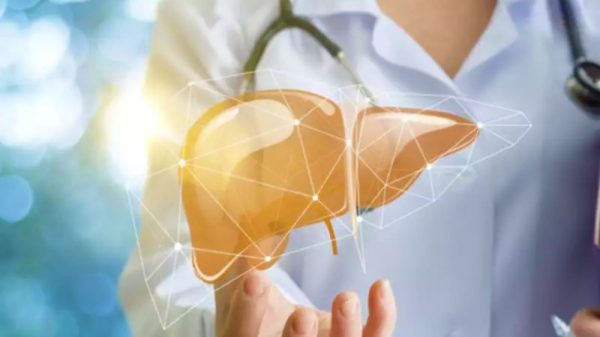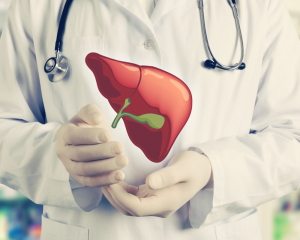Liver transplant facts refer to established and trivial facts about the liver. The liver is one of the most important organs of the body. Knowing facts about the liver can help you take care of it to avoid a life-threatening and expensive situation.
The Liver And Its Functions
The liver is a long triangular-shaped organ that filters blood and detoxifies it before releasing it to the circulatory system. It also produces bile to aid in the digestion of fats. Here are the other functions of the liver:
- Makes proteins for plasma in blood.
- Stores glucose and releases it when needed.
- Converts ammonia (harmful for the body) into urea which is a waste product of metabolizing protein excreted through urine.
- Removes bilirubin that can make eyes and skin yellow when there’s an excessive amount.
- Produces special proteins and cholesterol used to carry fats throughout the body.
- Removes toxic substances (such as alcohol) and medicines from the body.
What Substances Can Harm The Liver?
The liver can regenerate itself even after damage from chemicals or after being cut. But, it’s not immune to a constant flow of toxins from drinks, food, and viruses. These things can damage your liver or make it fatty.
- Alcohol: Too much drinking of alcoholic drinks such as gin, vodka, beer in the long term (years) can seriously damage your liver or lead to fatty liver. Alcohol is one of the leading causes of cirrhosis (apart from viral hepatitis).
- Viral hepatitis: Viral hepatitis or virus-induced cirrhosis can damage the liver and cause symptoms such as fatigue abdominal pain and jaundice.
- Trans fats: These are fats found in baked and packaged foods. They are also listed as partially hydrogenated in the ingredients list. Too many trans fats intake in the long term can lead to weight gain and fatty liver.
- Paracetamol overdose: This Non-steroidal drug can damage the liver by harming the structural connections between the organ and adjacent cells. Taking more than 4 grams of Paracetamol within the 24-hour period can increase the risk of paracetamol toxicity.
- Vitamin A overdose: Hypervitaminosis A or vitamin A toxicity can cause high brain pressure and liver damage. Possible complications of vitamin A overdose include liver damage, kidney damage because of excessive calcium, and osteoporosis. Its symptoms include the following:
- Dizziness
- Nausea
- Bone pain
- Bone swelling
- Hair loss
- Mouth ulcers
- Peeling skin
- Jaundice or yellow skin
Facts About the Liver and Liver Transplant
Combining medications with alcohol can be dangerous – Medicines such as acetaminophen (Tylenol), blood thinners, antibiotics, antidepressants, sedatives, muscle relaxants, and pain medications when mixed with alcohol can lead to liver damage
Liver transplant is expensive – Unlike the kidney transplant, a liver transplant is much more costly and complex. Sources on the internet reported a cost of 5 million Php. It’s expensive because of the donor needed, the possible complications and the expertise of the surgeon theme.
Biliary atresia can cause cirrhosis – Biliary atresia is a condition in children where the bile duct is absent and blocked. This blockage can lead to liver damage. In this case, a liver transplant is recommended.
The liver function is complex and so the invention of the artificial liver – Everyone may fancy about the artificial liver that can easily save a suffering patient but making such synthetic one is very difficult because of the complex functions of the liver. It’s very difficult to completely mimic the liver’s functions and the process of producing thousands of proteins. If you’re a liver patient, you can hope for the BAL or bioartificial liver device.
What Is The Process Of Liver Transplant?
1. Liver donor checking
- Candidates for liver transplants need checking. Physicians and specialists will first evaluate donors and test them using X-rays, blood tests, and health tests for their mental, kidney, lung, immune and heart health. Certain people with specific medical conditions can’t receive liver transplants – If you have one of the more of the following medical conditions, you can’t get a transplant.
- Severe infection
- Cancer in other parts of your body.
- Serious nerve, lung, and heart disease.
- Illegal drug abuse.
- Liver transplants get from two donors. Donors came from two types. First, the living donors who are close or next kin of the patient. The living donors can give his/her part of the liver and still be able to live since the liver can grow back to the normal size after a few weeks. The liver can regenerate itself. The second donor is the cadaveric donor or those from people who have just died because of an accident or some other disease. This requires consent from the relatives.
- Matching donors to the recipient doesn’t need matching by age and sex. The only needed match is the blood type and size. Mismatched blood type can lead to complications and life-threatening situations.
2. Liver transplant operation
- Liver transplants take 4 to 14 hours. It takes almost half a day to complete the transplant. Surgeons and medical assistants will remove or disconnect your liver from the blood vessels and bile duct. They will use a machine to temporarily let your blood flow back through your body while they get the new liver. The surgeons will connect the healthy liver and connect it to the blood vessels and bile duct.
3. Post-surgery care and monitoring
- Post-surgical operations are needed. After you receive a transplant, the physicians will ask you to stay in the hospital for 2 to 3 weeks. They’ll have to assess if your liver is functioning properly and will look into possible signs of infection and rejection. Otherwise, if your transplant is successful, you’ll receive a hospital discharge.
- Rejections could happen. Your immune system attacks any foreign things that enter your body and unfortunately, it can’t distinguish your new transplanted liver from the unwanted things. The good news is – there are medications (immunosuppressant drugs) that can prevent this immune attack. Such an immune system attack to the new liver is the same as your immune response attacking bacteria and viruses. Two kinds of rejection that could occur – First is the rapid or acute rejection and second is the chronic rejection.
- Immunosuppressant drugs could lower your resistance to disease. Although these drugs can save your new liver from being rejected by your body, your ability to fight bacteria, viruses can diminish. The doctors can consider letting you avoid contact with patients who have infections.
You may get symptoms of rejections – If your body rejects the new liver, these signs can show up:
- Nausea
- Excess sleepiness and fatigue
- Abdominal pain, tenderness and swelling
- Crankiness
- Headache
- Jaundice
- Decrease appetite
- There’s a machine called bioartificial liver. Currently, there’s no widespread machine that can keep patients alive while awaiting transplant akin to the kidney’s dialysis machine. The good news is there’s a newly invented machine called bioartificial liver which can keep the patient alive while waiting for the new transplant liver. Mayo clinic is one of the two hospitals in the US midwest to participate in the clinical trial. If this trial is successful, this could allow regeneration of the liver with partially damaged liver or keep the patient alive while waiting for the new liver.























